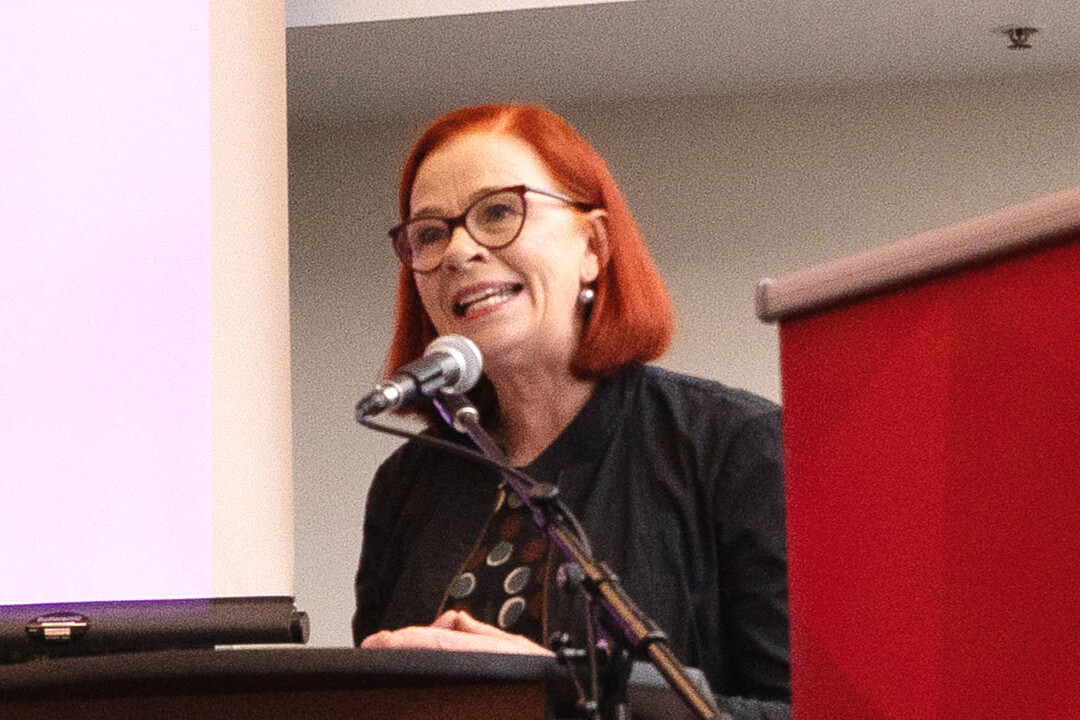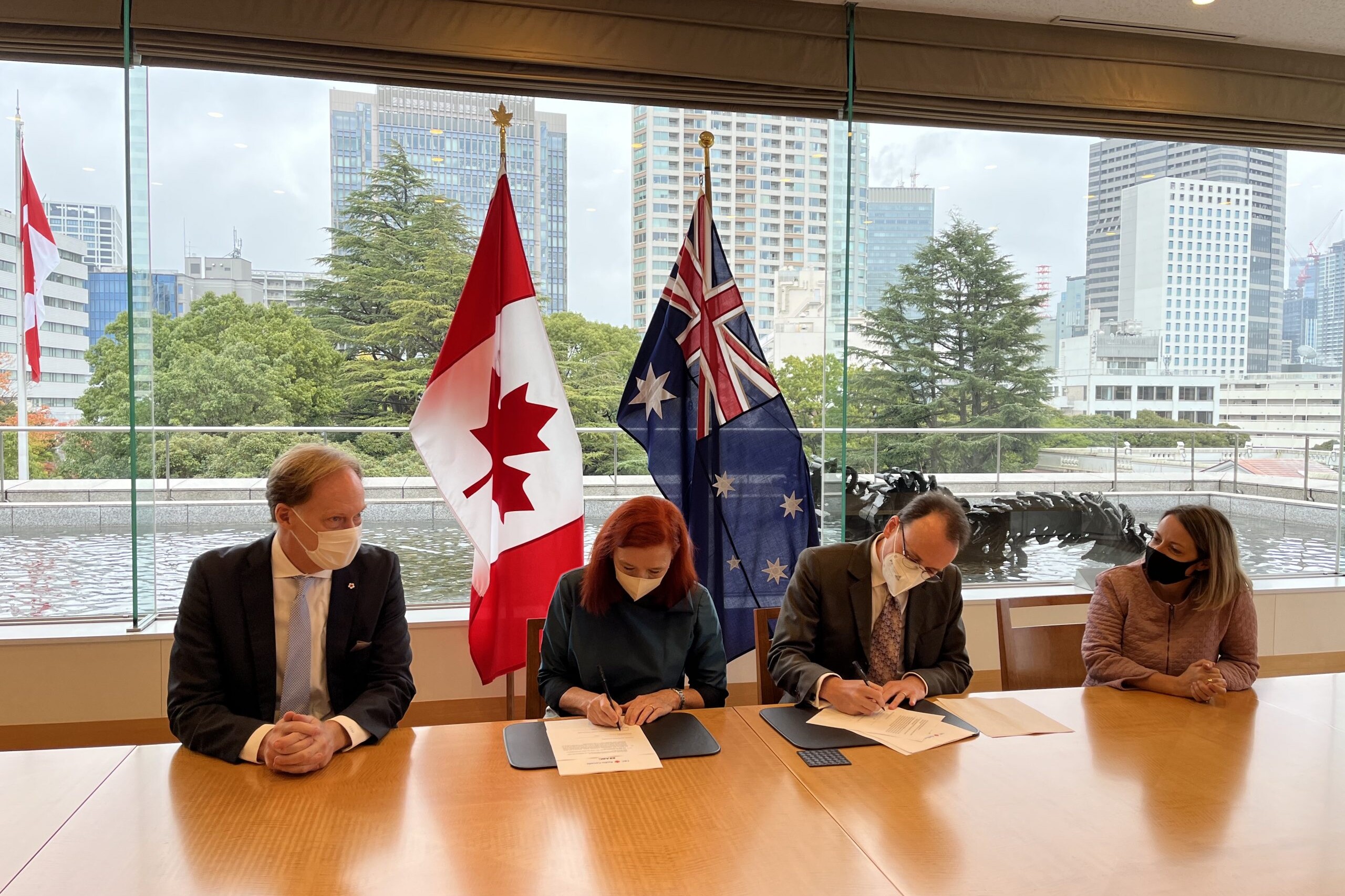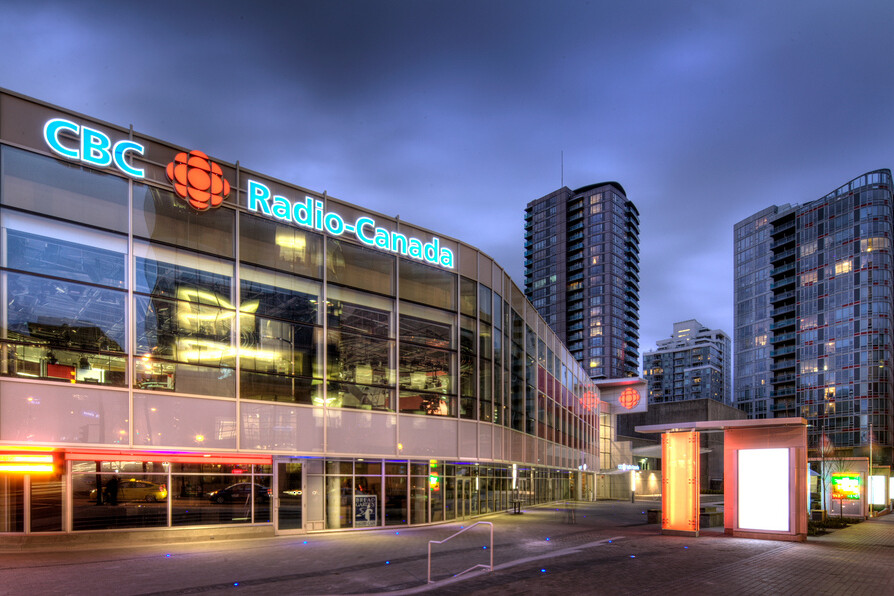It’s a Canada Thing: Standing Up For Our Industry and Our Stories
17th February 2023
“Now is the time to double down on homegrown talent and our Canadian-owned production sector,” says CBC/Radio-Canada’s President, in a speech urging the importance of investing in Canadian content, and maintaining the “Canada Thing”.
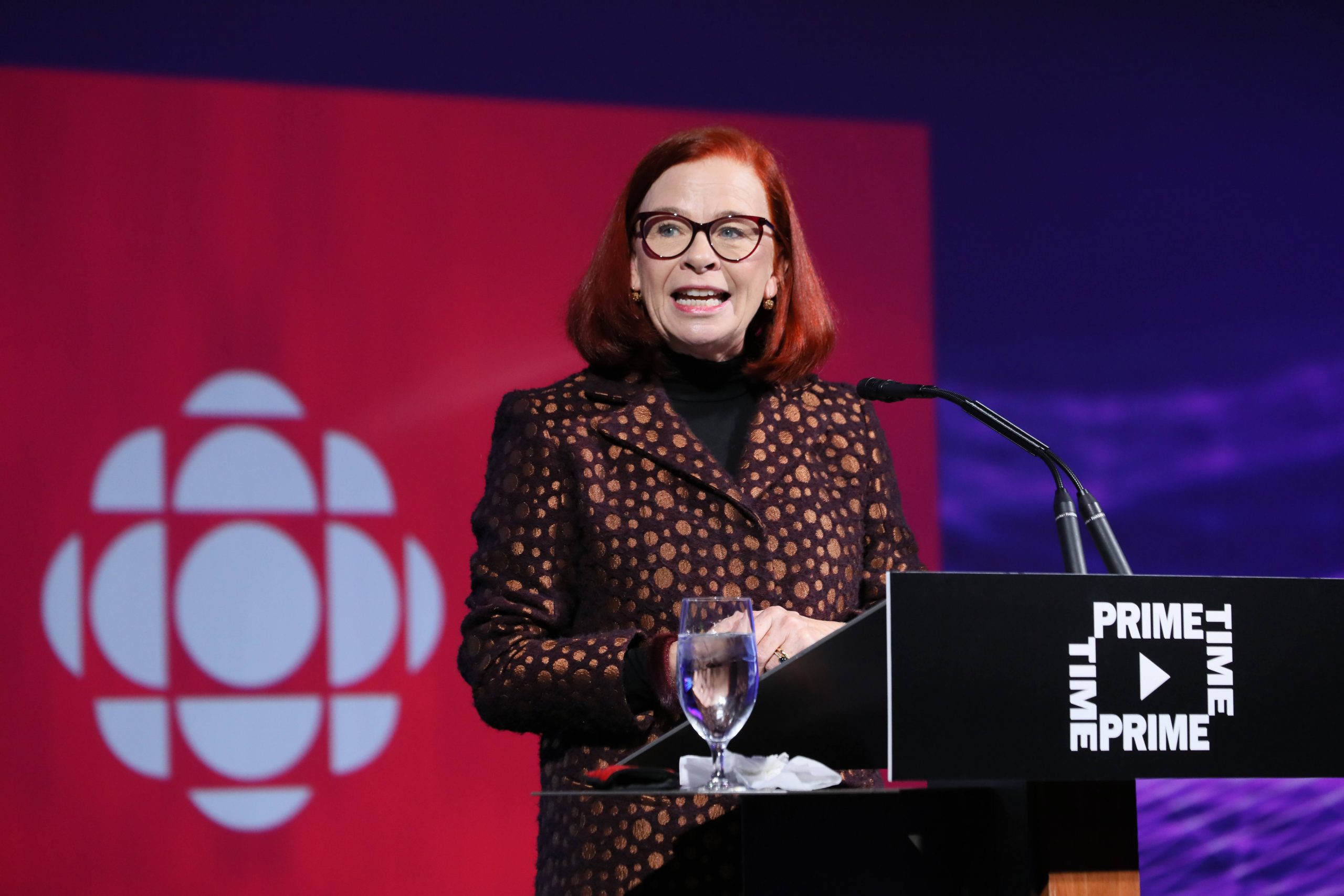
On 3 February, Catherine Tait, President and CEO of CBC/Radio-Canada, delivered a speech at Prime Time 2023 in Ottawa on the public broadcaster’s critical role in supporting Canadian culture in a market dominated by foreign streamers.
Hello. As a former producer and now head of Canada’s most significant commissioner of Canadian stories, I am delighted to be back at Prime Time again!
I’m also proud that CBC/Radio-Canada was one of the sponsors of this year’s Prime Time Equity, Diversity and Inclusion program to help ensure more access to this important networking event. I say this as the first woman to run CBC/Radio-Canada: a seat at the table is the first critical step to change.
That’s why I’m also thrilled that CBC has been able to renew our support for the second year of the CBC-BIPOC TV & Film Showrunner Catalyst Program at the Canadian Film Centre. It’s part of our commitment to build an industry where our creative leaders reflect what our country really looks like.
Today I want to celebrate what I would describe as the renaissance of screen storytelling in Canada — but also to sound an alarm for our homegrown creative sector.
Read more: Public broadcasters collaborate to reclaim public spaces with creation of “Public Spaces Incubator”
After all, to paraphrase Madeleine Albright: I am an optimist. But I am an optimist who worries a lot.
When I started in this business, it was the heyday of a new Canadian content industry. I had the honour of building a production company in Nova Scotia with shows like This Hour Has 22 Minutes, which celebrated its 30th anniversary on CBC this year. (So now you know how old I am!)
Thirty years. Thirty years of great Canadian series — The Nature of Things, Air Farce, Due South, Degrassi, Trailer Park Boys, Da Vinci’s Inquest, Orphan Black, Corner Gas, Heartland, Murdoch Mysteries, Kim’s Convenience, Baroness von Sketch, Schitt’s Creek.
The list is long and many of the titles are unforgettable.
And yet, there are some who say that Canadian television is no longer relevant.
My response? Now is not the time to abandon Canadian content — quite the contrary — now is the time to double down on homegrown talent and our Canadian-owned production sector.
Now is the time for all of us to take a more vocal stand in our support of truly Canadian stories told by Canadians.
To the naysayers who say why bother? I say, it’s a Canada Thing. Without a national public broadcaster and the vibrant domestic production industry that we support — we lose that Canada Thing. The thing that defines us as a country different from everyone else. The thing that connects this vast land. The thing that makes Canada a civil open society; the thing that makes us believe in a humane and tolerant country.
Canada is also home to eight million francophones, one million of whom are language minorities in their communities. Their perspectives and their unique histories in North America contribute to shaping who we are.
So here’s what we’re doing at CBC/Radio-Canada to stay relevant to Canadians and to ensure that Canadian content is part of our creative landscape tomorrow and into the future.
First, we are adapting to the realities of how Canadians consume content.
Second, we are committed to reflecting our audiences and the true nature of the country’s changing population.
And third, we are focused on trust — building and strengthening trust so Canadians know that they can depend on us to serve them wherever they are.
Adapting how we serve
What does it mean to adapt to how Canadians consume content today?
A lot has changed in 30 years. Google, Facebook, Twitter, Netflix, YouTube, Amazon, Tik Tok — another long list.
We know today that traditional television audiences are in decline. And what’s true around the world is felt most acutely in English Canada — recognized as one of the most competitive TV markets. The audience share for conventional television networks in English Canada is now just 30%.
Without a national public broadcaster and the vibrant domestic production industry that we support — we lose that Canada Thing. The thing that defines us as a country different from everyone else. The thing that connects this vast land.
Listen toour podcast
Uncovering and exploring the biggest
issues facing public media
And most of the audience for conventional TV in Canada is driven by US hit series. CBC is the only broadcaster with a pretty-much all-Canadian schedule, and we’re proud of it.
This is the reality of the English marketplace. It’s a very different picture in Quebec where the top 10 shows are still Canadian-made.
Francophone television is holding up well at first glance, but the future is far from certain. Foreign streamers increasingly monopolize the attention of younger viewers, alienating them from their culture.
So when we talk about adapting, we’re talking about adapting to audience behaviour. Younger audiences and new Canadians aren’t watching conventional TV. They’re watching the streamers, Tik Tok, and YouTube. That’s not going to change.
Even the mighty BBC has signaled that it expects to move completely digital by 2030. We all need to start thinking about what the end of traditional TV will mean for us, here in Canada.
If you hadn’t noticed, CBC/Radio-Canada has already become a multiplatform media service. Each month, over 22 million Canadians visit our digital sites. Each month, 20 million CBC podcasts are downloaded. Each month, 1.6 million Canadians watch CBC Gem. And those numbers will climb.
CBC Gem isn’t like other streaming platforms. It’s a truly Canadian alternative. We knew we didn’t have the financial heft to compete with the digital juggernauts — but we do know how to offer a Canada Thing. And that’s why Gem doubles down on Canadian events that support our cultural sector and creators like the Junos, last year’s tribute to Buffy Sainte-Marie and our fantastic Massey Hall music series. It’s also why we made local, national news and sports a centrepiece of Gem.
And for the producers in the room, Gem is now where Canadians first discover the very best Canadian content — whether through our Hot Docs selections; our spotlight on Black Canadian programs and Indigenous creators; or our deep catalogue of Canadian feature films. Today, series like Peabody-winner Sort Of and The Great Canadian Baking Show are more often than not viewed first on Gem.
Reflecting our audiences
Last year, John Doyle, in a rare moment of enthusiasm for CBC TV, praised Son of a Critch, Pretty Hard Cases and Sort Of, writing: “They are distinctly Canadian in a way that is not simply explained by being set in Newfoundland or Toronto. These series have a particular kind of alchemy that somehow represents a sensibility that’s just distinctly us. They appeal to viewers because they respond to a deep need to see ourselves as we are, in our singular Canadian mentality.”
It’s a Canada Thing — that’s what he was saying, and that’s what we would lose if we lost CBC Television.
I look at what we, together, have brought to life for Canadians and the world: Anne with an E, Kim’s Convenience, Workin’ Moms, The Porter and upcoming Bones of Crows and Essex County.
These are great stories. They all have that alchemy that Doyle describes. And they all reflect a different part of the Canadian experience. Authentic stories from different, diverse voices. We know that they resonate for Canadians and, increasingly, for audiences around the world.
That’s how we are reflecting our audiences — to stay relevant and to earn their trust.
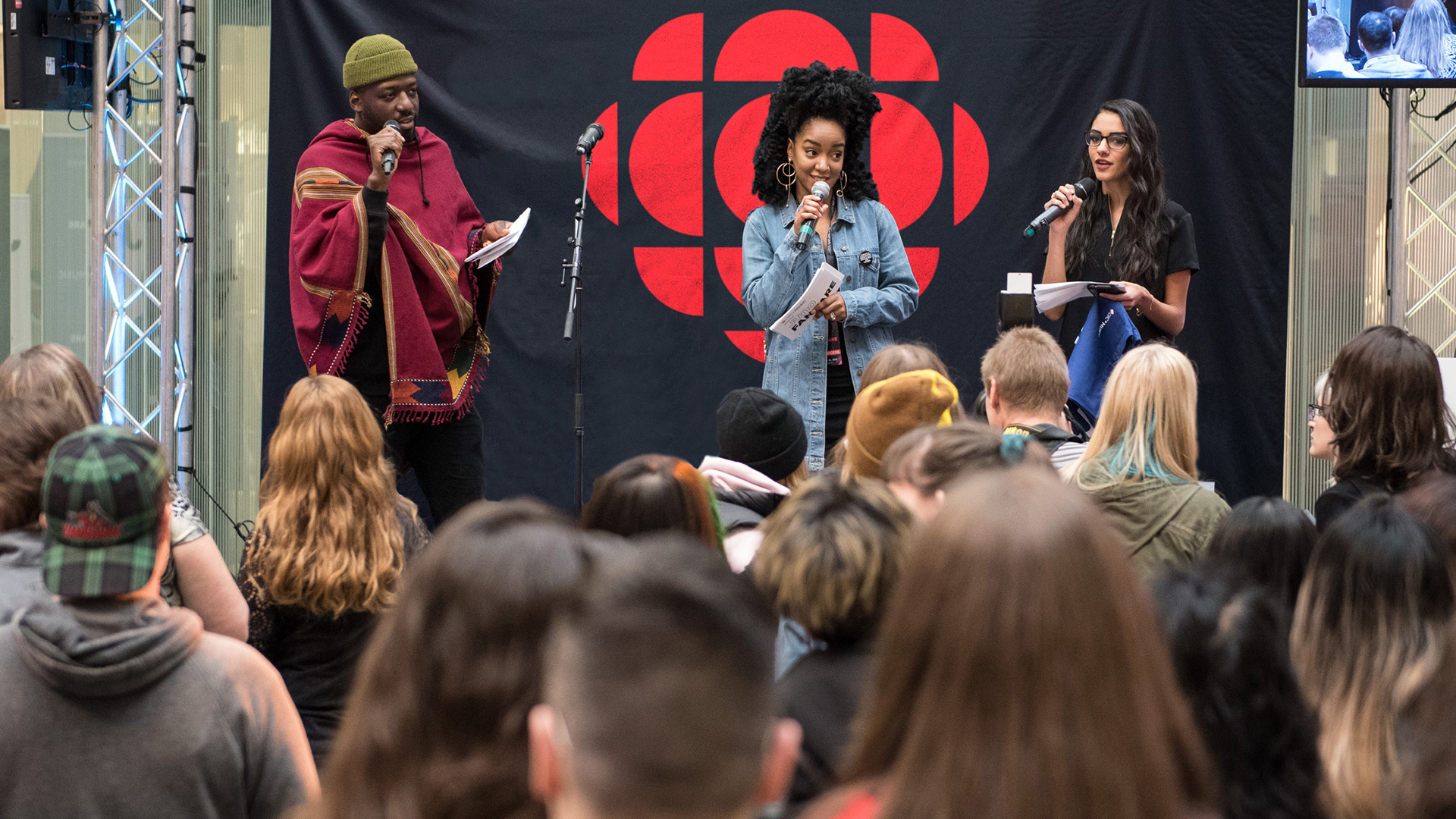
Earning trust of our audiences
And why does trust matter in this equation?
In entertainment, trust means authentic stories that ring true to Canadians; that reflect their concerns, their perspectives, and their lives. In news and information, trust is rooted in accountability and demonstrated commitment to our journalistic principles of accuracy, fairness, balance, impartiality and integrity.
In both, it is CBC/Radio-Canada’s proximity to Canadians that will always be our secret weapon. We’re in communities in every province and territory across the country. We care about discovering and nurturing emerging talent through our Creator Network and many outreach and training initiatives. Our commitment to Canadians will never waiver.
Co-existing with foreign streamers
We also know that Canadians love content from the US and from digital streamers. The streamers’ investment has been fantastic for the production community. More work for our crews, studios, post-houses, producers and creators. Bigger deals, bigger audiences. More outlets for our content is always a good thing.
Yet the business model of the foreign streamers is rooted in owning worldwide rights — that’s how they spread the risk on their big bets. Against hundreds of millions of subscribers.
If we Canadians have no control over the property itself — if we do not own it — then we are simply renting our country’s stories and talent.
The risk for us is that this own-all-the-rights business model directly threatens the underpinnings of our domestic, Canadian-owned production model. And while service production is good for business, it may be a short-term affair. What happens if foreign-owned streamers push out our domestic broadcasters? Or if market conditions change and the streamers take their business someplace else? Think of the auto industry.
Good jobs when times are good. But when the Big 3 went bankrupt in Detroit, we felt the pain here in Canada.
Things are already changing. 2022 was the first year in a decade that the streamers stumbled. Netflix lost almost one million subscribers last spring. Disney+ reported an operating loss of nearly $1.5 billion in its fourth quarter. Many streamers had to change their pricing models to include advertising.
Don’t get me wrong, I believe service work and domestic production are both important. And they should coexist. There is no denying the sheer fog-horn power of a Netflix or Amazon to take great Canadian shows like Schitt’s Creek or Workin’ Moms to the world.
But we cannot yank Canadian ownership of intellectual property from the equation. The future of our domestic industry is at stake. Canadian culture must belong to Canadians. And it simply should not be up for negotiation. That’s why Bill C-11 — and how it will be implemented — matters so much.
Standing up for Canadian culture
Some say that if a show looks Canadian, tells a Canadian story and is performed by Canadians then it is Canadian. What does it matter that it is owned by a foreign company?
I say that if we Canadians have no control over the property itself — if we do not own it — then we are simply renting our country’s stories and talent. In the short term, maybe that means a bigger, fancier house.
But in the long term? What happens when shifting economics or consolidation impact the streamers’ profitability and alter their commitment to funding production in Canada?
I, for one, believe that we, Canadian producers and Canadian broadcasters, should have a meaningful and unequivocal stake in the future of our industry. It’s a Canada Thing.
So what do we do?
We need to all start speaking out, together.
We need to let go of the past and the status quo and invent our future, together.
We need to stand up and say that Canadian culture matters. It matters that Canadian-owned companies survive and thrive.
And in response to cries to “Defund CBC,” we need to hear “Defend CBC.”
You know better than most what the end of CBC would mean to the Canadian production industry. Threats to the public broadcaster threaten our entire cultural sector and our industry.
We’re doing what we can, but you need to speak up.
I am so proud of CBC’s incredible programming team and their willingness to take risks on shows that no other networks would bring to life.
But we are utterly dependent on your creativity, ingenuity and sheer willpower to help us. Without you, we cannot be the broadcaster we aspire to be.
So, thank you for the pivotal role you play in allowing us to fulfil our mission and promise to Canadians.
But please, let’s work together to protect and strengthen this Canada Thing that we have all worked so hard to build.
Thank you.

About the author
Catherine Tait is the President & CEO, CBC/Radio-Canada, and Global Task Force Chair. CBC/Radio-Canada is a member of the Public Media Alliance.
It was originally published on CBC/Radio-Canada.
Related Posts
19th January 2023
Canada: Trust, Democracy and the Public Broadcaster
CBC/Radio-Canada's President reflects…
2nd June 2022
PMA welcomes new Board members from CBC/Radio-Canada and PBS
We warmly welcome Claude Galipeau and…

